Interest Free Financing Up To 36 Months
WE DO NOT ONLY PUMP YOUR TANK - WE CLEAN IT!
Multiple Financing Options Are Available Up To 36 Months
Interest Free Financing Up To 36 Months
WE DO NOT ONLY PUMP YOUR TANK - WE CLEAN IT!
Multiple Financing Options Are Available Up To 36 Months
Septic system backups can be a terrifying experience in homeownership. Having a cesspool of human waste or solids come into contact with the interior of your home is something that no homeowner ever wants to experience. Additionally, if you have multiple people living in your home, especially children, you must try to prevent backups as much as possible, and Septic Blue of Raleigh can help. The only way to do this is to understand what causes backups and what factors contribute to backup prevention.
If you have a septic system, you need to be aware of the signs that there is a potential backup. When your septic system fails, it can be expensive and time-consuming to repair. In addition, backups can result in a mess in your home or yard. If you don't know how to respond when there is a problem with your septic system, it will only worsen. Fortunately, there are ways to avoid damage if you know the proper steps to take when something goes wrong.
If your septic tank is not pumped out frequently enough or if too much water runs into it at once, the wastewater may have difficulty draining out of the tank. Untreated sewage can back up into your basement or even your home if this happens. It's essential to minimize the amount of water that enters your septic tank so that this doesn't happen to you.
A septic system consists of three main parts: the septic tank, the drain field, and the soil. Wastewater flows from your house into the septic tank through the main sewer line. Solid waste settles to the bottom of the tank while oil and grease rise to the top, forming a scum layer. The remaining liquid wastewater flows out of the tank into the drain field, where it is filtered by soil.
A homeowner should pump their septic tank every three to five years, depending on the use and size of the tank. If you live in an area with heavy clay soil and have a three-bedroom home, you should pump your tank every two to three years.
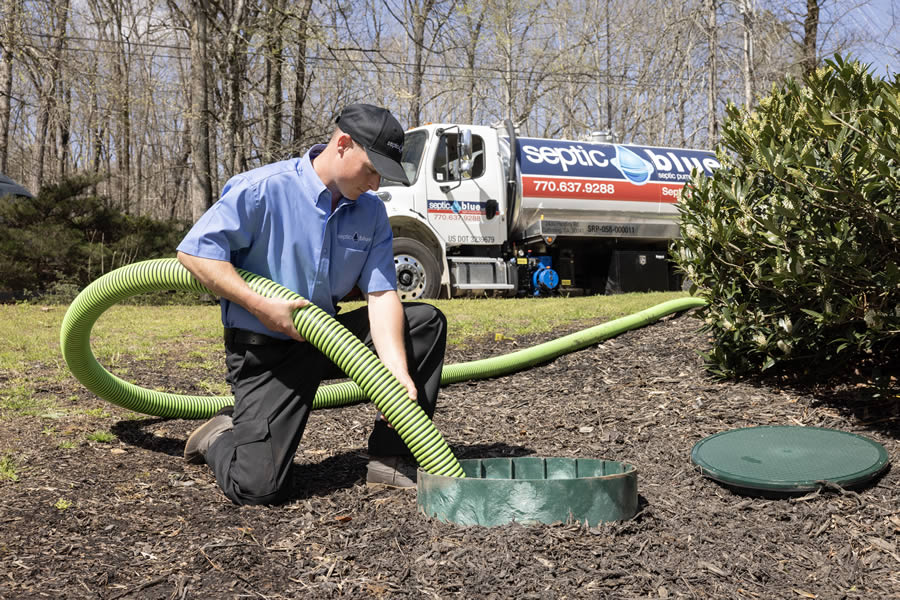
Septic tank pumping in Raleigh has never been so affordable and accessible thanks to the professionals at Septic Blue. We are…
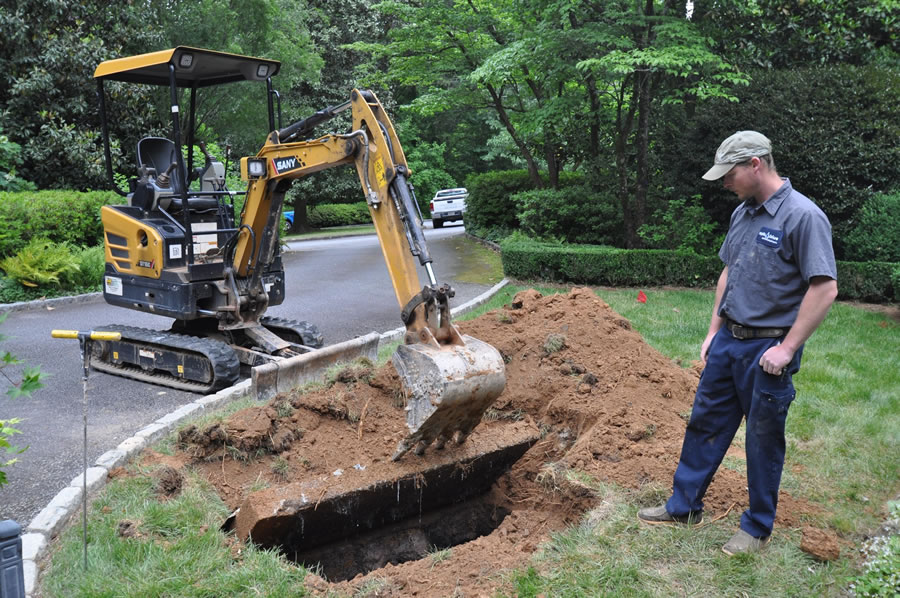
One quarter of Americans rely on septic tanks to process household waste. Most Septic Blue locations have septic tank experts who…
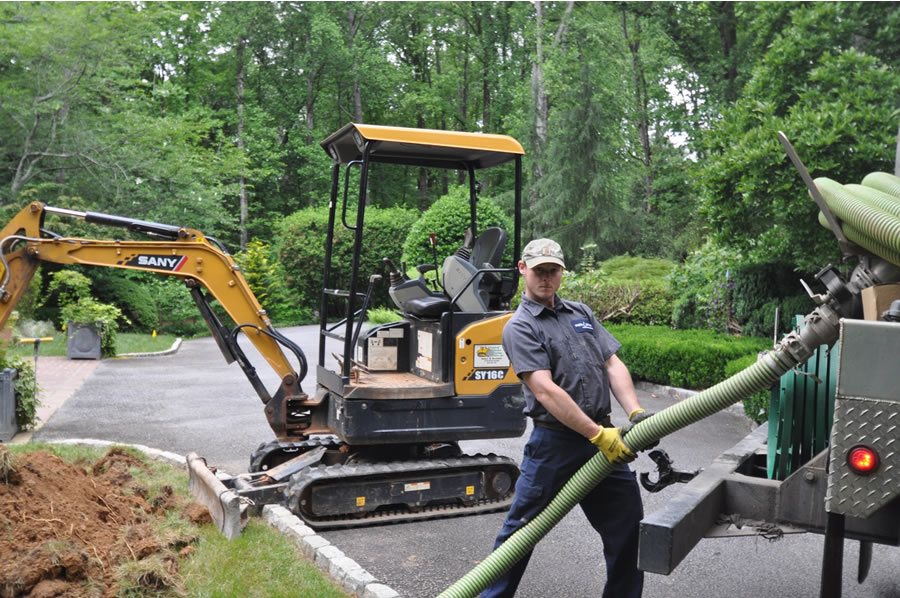
Call Septic Blue today for a second opinion. If you choose to go with Septic Blue, you'll receive $250 off your…
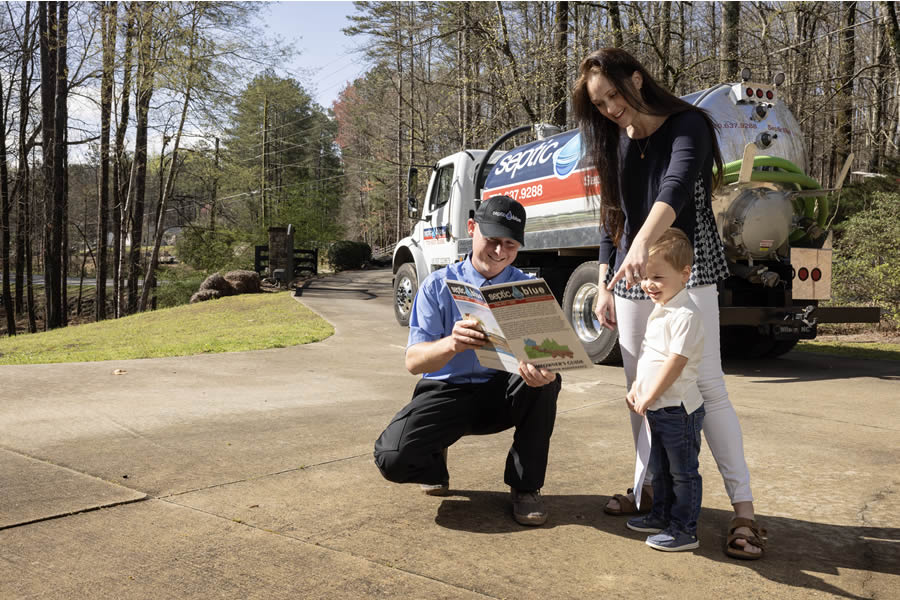
If you are a homeowner or resident in Raleigh that is among the 20 percent of households in the U.S. with…
Professional Saptic Plumbing solutions for every need. Contact Us Today!
When wastewater from home flows into your septic system, it first enters the septic tank, where solids separate from the liquid. The solid material sinks to the bottom of the tank and forms sludge. A layer of grease and oils floats to the top of the tank and forms scum. In between these two layers is wastewater that can flow out of the tank and into your field lines.
A healthy septic tank will have no problem processing this wastewater if you're not putting too much water or solid waste down your drains and toilets. However, if a large amount of waste enters the system at once, such as an entire load of laundry or several people flushing toilets at once, there may not be enough room in your tank for all of this extra waste.
What Causes Septic System Backups?
What Are Backup Warning Signs?
If you notice that your sink or shower drains more slowly than usual, then you may be experiencing a blocked drain. This can eventually cause a septic system backup if it worsens over time. If you have a slow draining toilet, this could indicate an issue with the main sewer line instead of just a clogged pipe.
Here is a list of possible events or actions that are warning signs:
If you live in an area where heavy rainfall is typical, install a septic backup valve between your drainpipes and the septic system. This valve prevents water from flowing backward from your drainfield into your house if the ground around your leach field becomes saturated with water (a condition called groundwater surcharge).
Be aware of what you put down your drains. Do not drain grease, cooking oil, coffee grinds, paper towels, feminine products, or other non-biodegradable materials. This also means only using toilet paper that is safe for septic systems.
Make sure your septic tank is pumped regularly and that the leach field is inspected yearly for cracks or clogs (at least). It's recommended to have the septic tank pumping every 2-3 years for optimal performance. Pumping your tank helps get rid of the sludge at the bottom of the tank and allows more room for new solid waste reducing the need for expensive septic tank repairs. This will help keep everything moving smoothly through the system and prevent any solids from building up in the drain field pipes.
Septic Blue of Raleigh
Keeping the preceding considerations in mind can significantly reduce your septic system's chances of requiring expensive repairs like septic tank pumping. It's also essential to work with a team like Septic Blue of Raleigh that can help you do the work safely, effectively, and efficiently. But if it ever does become necessary to complete a major septic system repair, it's crucial to take action quickly. For more information on repairing septic tanks, or if you have questions about how to avoid problems in the first place, contact us for a free estimate!
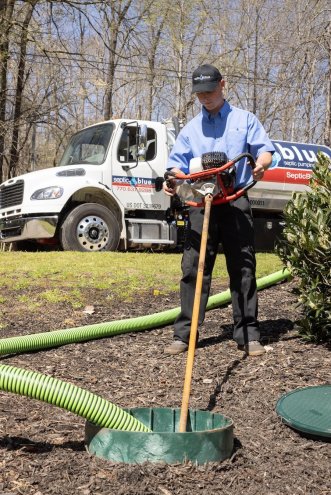
Your septic system plays a critical role in managing wastewater safely and efficiently, protecting both your home and the surrounding environment.…
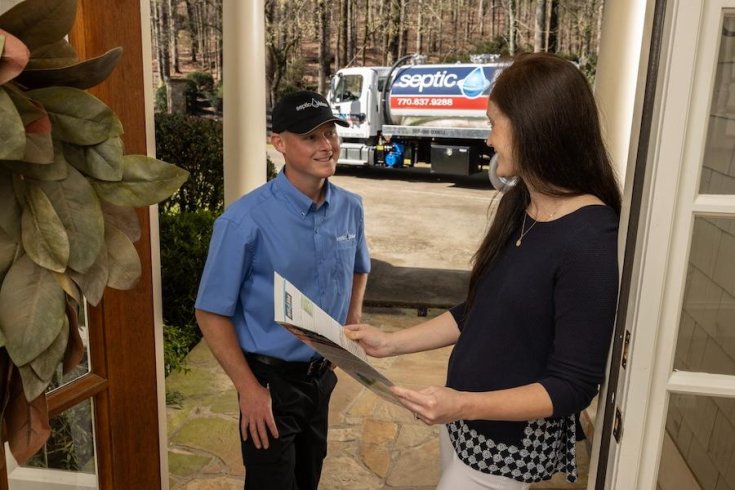
Hiring a septic company in Raleigh, NC involves more than comparing prices or scheduling the earliest appointment. Septic pumping, cleaning,…
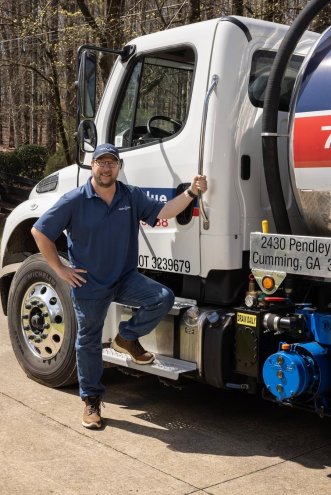
A septic system is designed to move wastewater efficiently from your home into a tank and then into the drain field.…
.webp)
Even if it often fades into the background of daily life, a septic system plays a critical role in keeping your…